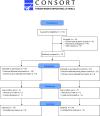Improving Toddlers' Healthy Eating Habits and Self-regulation: A Randomized Controlled Trial
- PMID: 33372118
- PMCID: PMC7780956
- DOI: 10.1542/peds.2019-3326
Improving Toddlers' Healthy Eating Habits and Self-regulation: A Randomized Controlled Trial
Abstract
Objectives: In this study, we tested whether Recipe 4 Success, a preventive intervention featuring structured food preparation lessons, was successful in improving the following 4 protective factors related to overweight and obesity among families living in poverty: toddlers' healthy eating habits, toddlers' self-regulation, parents' responsive feeding practices, and parents' sensitive scaffolding.
Methods: This randomized controlled trial was open to families enrolled in Early Head Start home visits and included 73 parents and their toddlers aged 18 to 36 months. Multimethod assessments were conducted at baseline and posttreatment.
Results: Compared with toddlers in usual practice Early Head Start, toddlers in Recipe 4 Success consumed healthier meals and snacks (d = 0.57; P < .03; 95% confidence interval [CI]: 0.08-1.06) and displayed better self-regulation (d = 0.95; P < .001; 95% CI: 0.43-1.45). Compared with parents in usual practice Early Head Start, parents in Recipe 4 Success engaged in more responsive feeding practices (d = 0.87; P < .002; 95% CI: 0.34-1.40) and were better able to sensitively scaffold their toddlers' learning and development (d = 0.58; P < .04; 95% CI: 0.07-1.09).
Conclusions: This randomized controlled trial revealed medium to large intervention effects on 4 important protective factors that are related to overweight and obesity but are often compromised by living in poverty.
Trial registration: ClinicalTrials.gov NCT03976089.
Copyright © 2021 by the American Academy of Pediatrics.
Conflict of interest statement
POTENTIAL CONFLICT OF INTEREST: The authors have indicated they have no potential conflicts of interest to disclose.
Figures
References
-
- Institute of Medicine Committee on Prevention of Obesity in Children and Youth In: Koplan JP, Liverman CT, Kraak VI, eds. Preventing Childhood Obesity: Health in the Balance. Washington, DC: National Academies Press; 2005 - PubMed
-
- Birch LL. Development of food preferences. Annu Rev Nutr. 1999;19(1):41–62 - PubMed
-
- Craigie AM, Lake AA, Kelly SA, Adamson AJ, Mathers JC. Tracking of obesity-related behaviours from childhood to adulthood: a systematic review. Maturitas. 2011;70(3):266–284 - PubMed
-
- Drewnowski A, Specter SE. Poverty and obesity: the role of energy density and energy costs. Am J Clin Nutr. 2004;79(1):6–16 - PubMed
Publication types
MeSH terms
Associated data
Grants and funding
LinkOut - more resources
Full Text Sources
Medical



